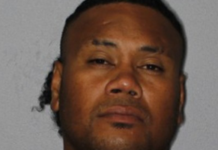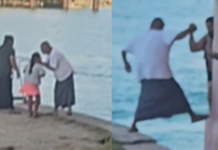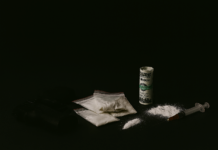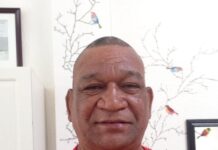The Government of Fiji has declared an HIV outbreak in response to a sharp increase in reported newly diagnosed cases during 2024.

A targeted 90-day containment plan will speed up immediate, high-impact interventions while the HIV Surge Strategy approved last September will guide the AIDS response until 2027.
UNAIDS will continue to support the generation of strategic information, technical planning, program innovation and resource mobilisation as Fiji implements short- and longer-term plans to prevent new infections and ensure people living with HIV benefit from life-saving services. For these strategies to work, those most vulnerable to HIV infection must be able to safely access the information and care they require. They should also play a leading role in the design and delivery of those services.
“Prioritization of HIV by the Government is critical for not only the people of Fiji, but the entire Pacific,” said Eamonn Murphy, Regional Director of UNAIDS Asia Pacific and Eastern Europe Central Asia. “Rising new infections in Fiji put the entire Pacific region at risk. Political will is the essential first step. There must also be community leadership and regional solidarity to ensure these strategies work.”
As Minister for Health and Medical Services, Hon. Dr. Ratu Atonio Lalabalavu noted yesterday, there were 1093 newly-reported cases from January to September 2024. This is three times as many as there were in 2023. According to the Ministry, reported cases have increased nine-fold over the last five years. The rapid rise in newly-diagnosed cases met the national criteria for declaring HIV a national outbreak.
Preliminary Ministry of Health numbers show that among the newly-diagnosed individuals who are currently receiving antiretroviral therapy, half contracted HIV through injecting drug-use. An additional concern is that over half of all people living with HIV who are aware of their status are not on treatment.
“Fiji has the second fastest growing HIV epidemic in the Asia and the Pacific region. These data do not just tell the story about a lack of services,” Mr Murphy explained. “They indicate that even when people know they are HIV-positive, they are fearful to receive care. There must be a deliberate effort to not only strengthen health systems, but to respond to the unique needs of the most affected populations, including people who use drugs. Perpetuating prejudice against any group will slow progress. We must work together to make it safe and easy for people to access the information, services and support they require. In the words of Minister Lalabalavu ‘discrimination and stigma will only serve to make our current situation worse’.”
The HIV Outbreak Response Plan calls for a combination of prevention approaches including the introduction of harm reduction programs for people who inject drugs. Since the sexual transmission of HIV remains a significant factor, other key approaches are condom distribution and pre-exposure prophylaxis or PrEP. (PrEP is treatment taken by an HIV-negative person to reduce the risk of contracting HIV if they are exposed.) Through the Australian Government’s Indo-Pacific HIV Partnership, UNAIDS is supporting Fiji to scale up these comprehensive prevention approaches.
The United Nations in Fiji recognizes the Government’s decisive leadership in addressing the HIV epidemic and reaffirms its commitment to supporting the national response.
“The declaration of an HIV outbreak and the launch of high-impact interventions, such as needle syringe programs and PrEP, mark a critical turning point in Fiji’s efforts to combat the epidemic,” said Mr. Dirk Wagener, United Nations Resident Coordinator in Fiji. “We commend the Hon. Minister for Health and Medical Services for his bold leadership in taking this pivotal step. The Joint UN Team on HIV, with UNAIDS as its Secretariat, stands ready to provide coordinated and sustained support to ensure the success of these strategies and to protect the most vulnerable.”
The HIV Surge Strategy includes tactics for Fiji to achieve the Global AIDS Strategy targets—95% of all people living with HIV aware their status, 95% of diagnosed people on antiretroviral therapy, and 95% of people on treatment achieving a suppressed viral load. People who attain viral suppression through treatment adherence and monitoring will live normal healthy lives and a person with an undetectable viral load cannot pass on the virus through sexual intercourse. This is known as Undetectable equals Untransmittable (U=U).
“HIV treatment is effective. It not only keeps people living with HIV healthy, but can help prevent new infections,” explained Renata Ram, UNAIDS HIV Adviser in Fiji. “Every Fijian has a part to play by making our homes, communities, schools, workplaces and places of worship, spaces that support and care for people rather than shame and exclude them.”







